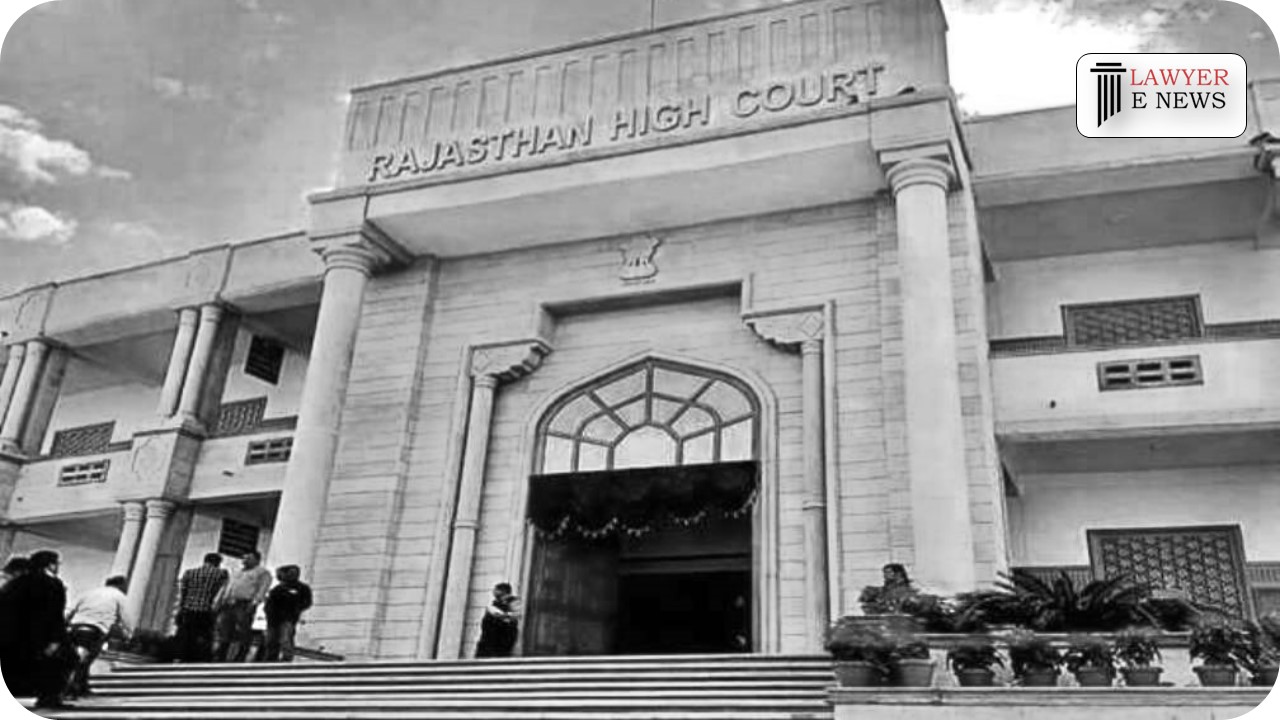-
by Admin
15 February 2026 5:35 AM



High Court reaffirms trial court’s decision to acquit accused under Sections 279, 304-A IPC due to insufficient evidence and inconsistencies in witness testimonies. The Rajasthan High Court has upheld the acquittal of Prem Prakash, accused of causing death by negligent driving under Sections 279 and 304-A IPC. The judgment, delivered by Justice Manoj Kumar Garg, emphasized the importance of the presumption of innocence and found no compelling reason to overturn the trial court’s decision.
On October 31, 2003, Khem Chand filed a report alleging that his brother, Bishanu Das, was fatally injured by a truck driven by Prem Prakash. The incident occurred when Bishanu Das was riding his motorcycle, and the truck, allegedly driven in a rash and negligent manner, hit him, leading to his death in the hospital. An FIR was registered, and a charge sheet was submitted against Prem Prakash. The trial court, however, acquitted him due to insufficient evidence and contradictions in witness statements, prompting Khem Chand to file a revision petition.
Justice Manoj Kumar Garg reiterated the principle of presumption of innocence, stating, "The preponderance of judicial opinion is that there is no substantial difference between an appeal/revision against conviction on the one hand and acquittal on the other. The presumption of innocence in favour of the accused has been fortified by his acquittal."
The court meticulously reviewed the trial court's judgment and the evidence presented. "There are major contradictions, omissions, and improvements in the statements of the witnesses," Justice Garg observed. The inconsistencies in witness testimonies weakened the prosecution's case, leading to reasonable doubt about the accused's guilt.
The judgment highlighted that the trial court had considered all aspects and evidence presented before it. Justice Garg noted, "The trial court has passed a detailed and reasoned order of acquittal, which requires no interference from this Court."
The judgment referenced precedents, including the Supreme Court rulings in Mrinal Das v. The State of Tripura and State of Rajasthan v. Shera Ram alias Vishnu Dutta, to underscore the high threshold for overturning an acquittal. The court emphasized that acquittal should only be interfered with when there are compelling and substantial reasons, and the order is clearly unreasonable or ignores crucial evidence.
Justice Garg emphasized, "An order of acquittal is to be interfered with only when there are 'compelling and substantial reasons' for doing so. If the order is 'clearly unreasonable', it is a compelling reason for interference."
The Rajasthan High Court's decision to uphold the acquittal of Prem Prakash reinforces the judiciary's commitment to the principle of presumption of innocence. By affirming the trial court's detailed and reasoned judgment, the High Court sends a strong message about the rigorous standards required to overturn acquittals. This decision is expected to influence future cases by highlighting the necessity of compelling evidence to secure convictions in criminal trials.
Date of Decision: May 29, 2024
